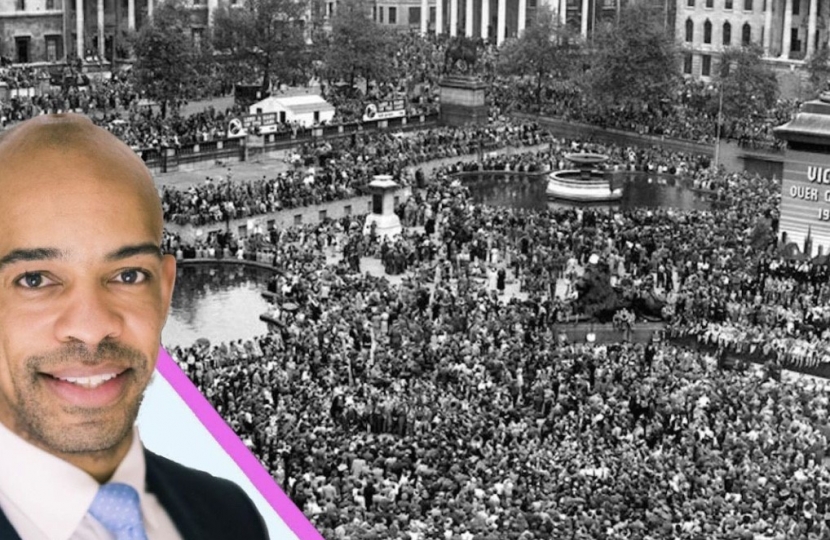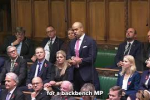
On May 8th 1945 at 2120hrs, representatives of the Oberkommando der Wehrmacht signed the definitive Act of Military Surrender in Karlshorst Berlin, officially acceding to a cessation of hostilities and drawing the Second World War to a close. May 8th would henceforth be celebrated by the Allied Nations as Victory in Europe Day.
This year marks the 75th anniversary of VE Day. It is probably to be one of the last such major celebrations of the event that is likely to involve anyone with a first-hand recollection of it, let alone to have served during the conflict. A much larger group will have lived through the aftermath, growing up in the years immediately following the war, coping with rationing, the emergence of a new threat in the Soviet Union, National Service and the Korean War and the process of rebuilding the nation after the most tumultuous period in history.
The current crisis around Coronavirus will prove to be an epoch defining moment, but what parallels can we draw between the situation facing Britain immediately following 1945 and the likely impact that COVID-19 will have?
Economically
Despite emerging from the debris of the Second World War as one of the victorious powers, Britain was in a financially precarious state; all but bankrupt and with the prospect of an unbridgeable balance-of-payments deficit.
The golden age of economic growth that characterised the post-war period represented the highest growth rates that the world had experienced; the speed of the economic recovery was unprecedented, as was the level of international cooperation that came with it. In Western Europe it took only three years for production levels to return to pre-war levels compared to six years following the First World War. A parallel can be drawn with the economic predictions for the Coronavirus recovery; It is thought that GDP may not return to the levels seen at the start of this year until the end of 2022.
Where the fallout from Coronavirus differs from the post-war period is in the nature of the recovery. The post-war period saw focus upon the rebuilding of physical infrastructure and geopolitical frameworks as much as that of societal systems. The next few years will see a realignment of the economic measures implemented to mitigate the damage that a two-month shutdown, and government backed safety net, has had.
The speed at which the Exchequer was able to implement the furlough scheme and Coronavirus Business Interruption Loan Scheme was vital in achieving public buy-in, avoiding foreclosure and mass job cuts early on, but there will be tough questions to answer regarding taxation over the coming years, seguing into Brexit in 2021 with a European Union where many of the major players will have been as ravaged by the impact of the disease as Britain. Where the Marshall plan was an attempt to underwrite post-war political stability, forging a natural alliance in western Europe and marginalising new communist regimes inhibiting Soviet expansionism, the closest parallel will be the proposed EU Recovery Fund. It would be interesting to understand how much that may have cost us as a nation, and how much we would have received in return.
The start-state in 1945 was compounded by the dire economic situation witnessed throughout the 1930’s, but Britain will not face the same challenges as it did in the period immediately following the end of the war. Shortages will be managed by the free market, despite the perverse glee with which many on the left greeted empty supermarket shelves at the beginning of March. There will be no labour shortage from an absence of young men either, rather a surplus of employable people available within the workforce.
With the OBR predicting that the unemployment rate will rise from 4% to 9% with potentially more than 100,000 companies failing. The industries where that risk is most prevalent, across hospitality, transport retail and recreation account for nearly 10m jobs, representing the 9% figure and seeing a higher level than was reached a decade ago during the global financial crisis. The key will be in ensuring that these sectors are adequately supported in order to prevent widespread unemployment.
Politically
The Government may do well to heed the lessons painfully learnt following the end of the Second World War. Despite leading the country to victory, it was felt that Churchill would not be the best choice of peacetime prime minister and that Labour would be better placed to lead rebuilding efforts, particularly following the Beveridge report. The 1945 General Election represented a landslide victory for the Labour Party. With the swing of 10.7% the largest seen.
But Labour’s resurgence was short-lived. Having played heavily on the idea of winning the peace, Labour failed to heed the advice of John Maynard Keynes that Britain faced a “financial Dunkirk” should the United States withdraw its lend-lease programme. When it did the Labour Government were required to negotiate a separate loan with the US in order to facilitate our maintenance of global military capability alongside the newly established welfare state. It wasn’t until December 29th 2006 that the UK made its final $83million repayment to the United States.
Coupled with the 1949 balance-of-payments crisis and the ensuing devaluation of Sterling, restrictions on domestic capital investment led to a failure to undertake a modernisation programme. Atlee’s Labour administration was profligate in its prioritisation of the $2.7billion from the Marshall Plan as a general subsidy for shoring up Britain’s global strategic interests, rather than ring-fencing its expenditure for a systemic modernisation of Britain’s industrial and technological infrastructure.
This Government has thus far spent wisely in its efforts to mitigate the economic impact of the crisis, but the effect that mass unemployment may have on the Conservatives’ election pledge of levelling-up those regions which had been left behind could be critical. An inability to make progress there, and across those seats throughout the former Red Wall may see the pendulum swing back to a Starmer-led Labour Party in those constituencies where votes have only been “lent”. If the inevitable economic downturn is as significant as many fear, the subsequent increase in income inequality that will exacerbate existing divisions will do little to assuage fears or encourage those demographics to believe that a Conservative Government is capable of solving their problems.
Societally
Societally Britain changed significantly over the course of the Second World War, and though the impact of Coronavirus is incomparable, despite parallels drawn with the number of deaths surpassing those sustained during the Blitz, the mark that this will leave will define much of the discussion for the next decade and beyond.
We have already seen the beginning of a shift in attitudes within our own society in response to this crisis. The incredible numbers of volunteers, not just across the NHS but across a plethora of charity organisations and community schemes has shown a level of selflessness not often seen in Britain.
The mobilisation of so many willing to “do their bit” augurs well for the vital efforts to regain normality once the initial impact of the virus has subsided and we begin to manage the virus. To see so many willing to forego the liberty we so often take for granted, and take the personal responsibility and self-discipline required to ensure that the measures required are implemented has required a collective self-sacrifice rarely seen, but typical of a nation that once embraced “Keep Calm And Carry On”.
The comfortable framework within which we have all lived our lives has been found wanting by the reverberations of the current crisis. The period that followed the Second World War saw Britain’s relative decline as a world power as Cold War tensions built and the hegemony of two true World Superpowers began. The situation is not as binary now, but with the Russian Federation as belligerent and secretive as ever and China keen to reassert its influence as a growing economic superpower, whilst committed to deflecting blame for the situation it is keen to now benefit from, the opportunity now exists for a reset. The coming months and years will see a sea-change to not only the way we lead our lives, but also the framework within which those lives are lived. If the Second World War set the conditions for the structure of the World over the past 75 years, will the current ‘war’ set the terms under which we live for the next three-quarters of a century?
We as a nation have been indelibly marked by the most significant global conflict to take place. It is responsible for such a significant part of our national psyche that any jingoism attached to it is embedded deep within the makeup of our society across a huge array of cultural touchpoints. The phraseology that comes with any comparison to war, particularly parallels to the Second World War, is familiar, easy to understand and crucially, synonymous with victory.
As the muted celebrations for the 75th anniversary of VE Day take place we should pause to remember the incredible hardship and sacrifice that millions endured as a result of events far beyond their control, and take comfort from the fact that the collective will of this nation will steer it through the current crisis once more.
This article was first published on FMConservatives on 5th May 2020




